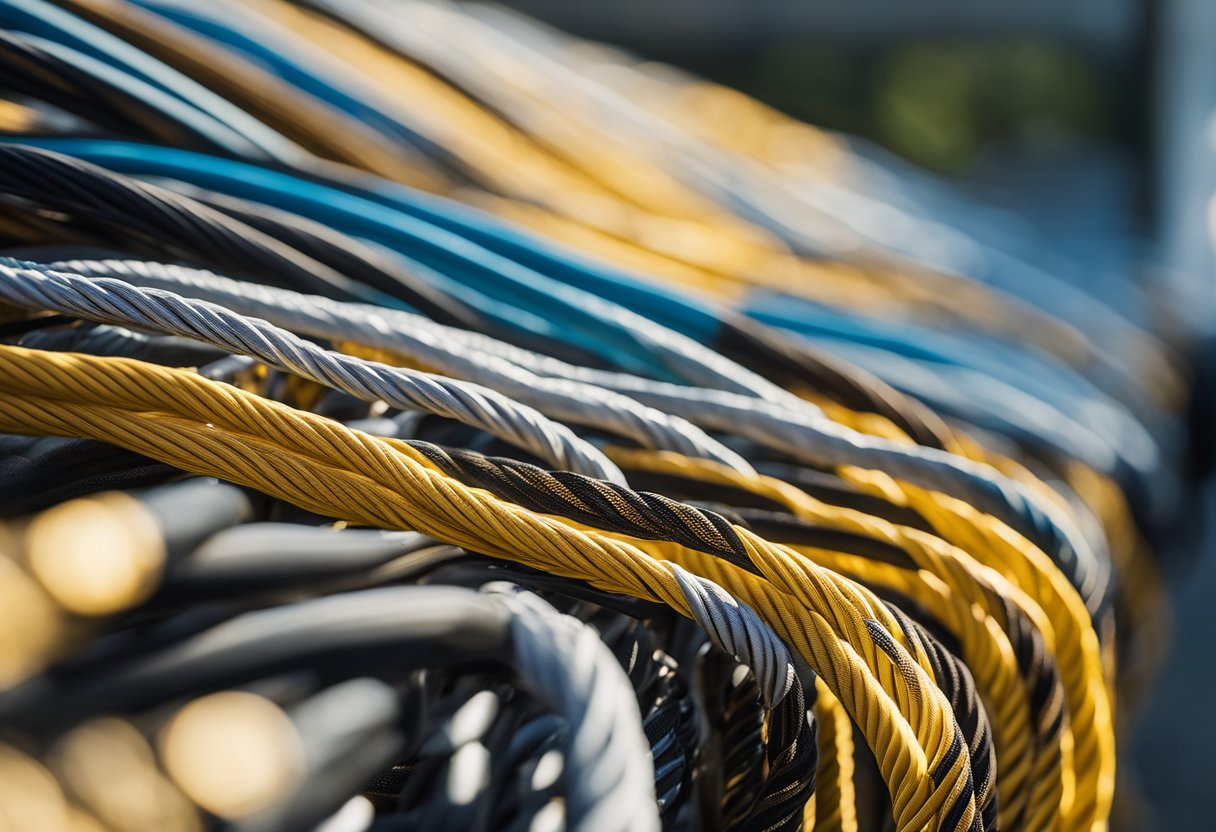
Harnessing solar energy effectively hinges on various factors, among which the quality of solar wiring is paramount. While solar panels are often in the spotlight, the cables that connect these panels are crucial for ensuring a system’s integrity and performance. Choosing high-quality solar wire is essential for minimizing power loss and maximizing the longevity of any solar installation.

High-quality cables are designed to withstand harsh environmental conditions, such as extreme temperatures and UV rays, ensuring durable performance. They are built to handle high voltages safely, reducing the risk of faults and inefficiencies.
Inadequate cables can lead to increased maintenance costs and unexpected system failures. By investing in reliable solar wiring, we safeguard not only the performance but also the financial viability of solar investments. Reducing these risks offers peace of mind and contributes to the broader adoption of solar energy solutions.
Key Factors in Solar Wire Quality for Long-Term Performance
Ensuring the long-term performance of solar energy systems depends heavily on the quality of solar wires. These wires are integral to reliable and efficient energy transfer and must be selected with precision. Material quality, durability, safety standards, and electrical properties are essential considerations.
Conductivity and Material Quality
We understand that conductivity is crucial in choosing the right solar wire. Copper wires are widely preferred due to their excellent conductivity, allowing efficient energy flow with minimal loss. Aluminum wires, while lighter and less expensive, often have lower conductivity compared to copper, which can be a drawback in terms of system efficiency.
Material quality is not limited to the conductor itself. The type of wire insulation plays a significant role in performance. High-quality insulation materials help maintain conductivity by protecting against environmental factors that may cause degradation.
Durability and Resistance to Environmental Factors
Our solar cables must withstand various environmental challenges such as UV radiation, extreme temperatures, and moisture. It’s important that these cables feature UV resistance to prevent damage from prolonged sun exposure. High temperature tolerance ensures that they remain functional during periods of intense heat.
Corrosion resistance and mechanical strength are equally important, as they safeguard against environmental damage and stress. Proper wire selection includes materials that are designed to be waterproof and can endure environmental exposure without significant wear.
Safety Standards and Regulatory Compliance
Adhering to safety standards and regulations is non-negotiable. We ensure all our solar wires comply with the National Electrical Code (NEC), which outlines necessary safety and installation standards. Compliance guarantees the safety of our photovoltaic systems and aligns with relevant building codes.
Our focus on safety includes appropriate overcurrent protection which prevents excess current that can create hazardous situations. Performing regular checks for new or updated regulations helps us maintain compliance and ensures that our solar technology operates safely and effectively in all circumstances.
Electrical Properties and Sizing Considerations
Electrical properties, including wire gauge and sizing, significantly impact system performance. We carefully assess the American Wire Gauge (AWG) ratings to ensure correct wire sizing, which is critical to managing energy flow and minimizing voltage drop. Proper sizing prevents overheating and energy loss.
Current rating and system voltage requirements dictate the choice of solar wires. Attention to voltage and amperage ratings ensures that wires can handle the energy produced by solar panels without being overstretched.
Impact of Solar Wire Quality on System Performance and Reliability
High-quality solar wire is crucial for the efficiency and reliability of solar power systems. It affects energy transmission, safety, and the lifespan of the system.
Efficiency and Power Loss Reduction
The quality of solar wire is paramount to energy efficiency. In solar power systems, electricity must travel over long distances. High-quality wires maintain electrical conductivity, minimizing power loss. Power loss occurs due to resistance within the wire, affecting energy production.
Using cables with appropriate insulation and conductivity ratings can reduce energy loss. This ensures more consistent direct current (DC) and alternating current (AC) flow.
Reliability, Safety Risks, and Performance Longevity
Solar wire impacts the overall reliability and safety of solar energy systems. High-quality cables are designed to resist environmental stresses like UV radiation, moisture, and temperature changes. This durability prevents overheating and potential electrical hazards.
Low-quality cables can lead to electrical faults, increasing safety risks and reducing system lifespan. Loose connections or physical damage from subpar cables compromise performance guarantees. Using reliable cables prolongs the operational life of the system, protecting both equipment and installers.
Installation Practices and Cable Management
Proper cable management and installation techniques are vital for avoiding performance issues. Ensuring careful cable routing and placement minimizes the risk of electrical faults. Securing cables correctly helps prevent damage and ensures system efficiency.
Important practices include use of junction boxes, effective grounding, and regular visual inspection. Implementing high-quality wires alongside careful installation maximizes the performance and safety of solar panel systems.

